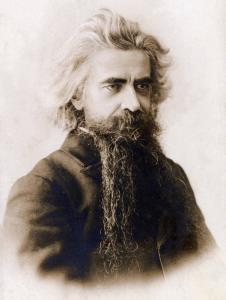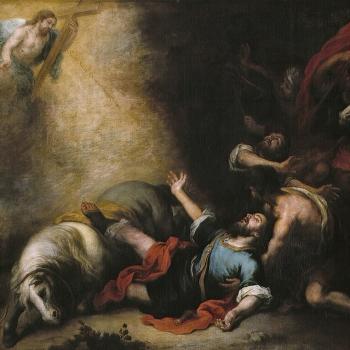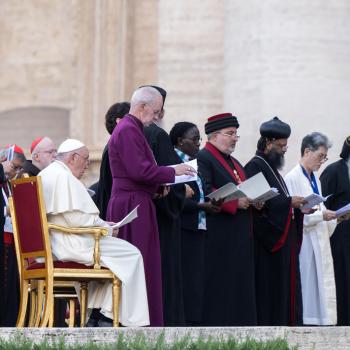
As our faith matures, we often come to realize that our faith, as we first understood it, needs to be examined, and indeed, deconstructed, so that we can rid of it all kinds of errors which we have appropriated to it. Hopefully then we will be able to see our faith in a new light, understand it better, and allow it to grow into a new, purer but yet greater version of what we once held. What we need to realize is that deconstruction, the desire to examine our faith in a critical light, looking at how it has formed and the problems which developed in its formation, is not in itself a problem. It can and will become a problem if we get so caught up in deconstruction that we do not move on to the reconstruction which should happen afterwards. Deconstruction, when properly used, is a useful tool, for it can help our faith develop and grow into a mature faith, but if we become attached to it and its ways without realizing its purpose, it certainly can also be used to destroy our faith. This should not be surprising. Our faith needs constant repair. If we engaged it like a mechanic, we would understand that we do not take apart our faith completely, leaving nothing of the faith behind, but rather, we look to where the damage is found, remove it, and then build upon what is left until it becomes like new. We should keep this in mind when we employ deconstruction so that we do not let it turn into a nihilistic urge to destroy the faith itself. For if we do, then we can examine our faith, remove from it all the bad ideas which we have developed over time, see how and why they developed, and then make sure when we reconstruct our faith, we keep whatever was good while removing all that could lead us astray. Then, hopefully, we will have a better relationship not only with God, but with each other, as our renewed faith will motivate us and inspire us to act in ways which meet our better understanding of it. To be sure, deconstruction does not have to be, and likely will not be, a one-time thing in our lives; rather we will probably go through cycles where we find ourselves building up our faith, then finding the need to examine what we have built, deconstruct it, and develop it some more, for in this way, not only will our faith not grow stale, it should grow stronger as we hopefully apprehend more and more of the truths which are revealed to us by our faith.
(Pseudo)-Dionysius, with his apophatic theology, understood this; he always made sure that apophatic theology, which helps keep us from assuming too much of our understanding and our way of thinking, does not become an anti-theology. The denials we make through apophatic theology, the deconstruction which we make of our notion of God, then leaves open a greater, more transcendent notion of God; then, as we apprehend God better, we shall be able to develop better positive (kataphatic) theological discourses. One of the notions that Dionysius emphasized throughout his work was that the divine nature would always transcend the constructs which we make to represent it; once we appreciate this, we will understand why we must not confuse our construct, however good it might be, with the full reality of who and what God is. However, he is clear that we should base our denials, our deconstruction, not through mere rational criticism, but through our apprehensions of God, that is, the truth presented in apophatic theology is itself meant to express and affirm the truth of our experience of God. We must not bcome stuck in the way we apprehend the divine nature, that is, we are not to assume our apprehension is comprehension. Our apprehension is real, but the way we describe and explain it can be faulty, and so it needs to always be conditioned by apophatic denials, denials which will always serve to point us to greater and greater apprehensions as we continue our engagement with God.
Vladimir Solovyov, likewise, understood this, and so he spoke of the way our faith comes to us in stages, with one stage being a period of deconstruction, a period in which we put away childish understandings of the faith:
And so you see, regarding properly developed religion a person passes through three stages: the first period, childish or blind faith; the second period – development of reason and denial of blind faith; and finally, the last period of conscious faith, consciousness based on the development of reason. [1]
While he said this, he wanted to make sure we did not misunderstand him. Our deconstruction must not be seen as leading us to a new, or different, object of faith. The fact that we will have different understandings about God should not lead us to conclude we really worship and believe in different gods. If we do not grant this then Christians, in different stages of their faith development, would have different gods, undermining Christian unity. Thus, what changes is not the object of faith, but the way we understand that object, that is, God:
And though God is one and the same, the faith to which more philosophy leads is without doubt already not the faith that a little intellect distances one from. No wonder that one surmises the faith of a conscious and thoughtful Christian as somehow differing from the faith of an old woman in the countryside, though the subject of faith is the same and both of them can be true Christians; even the inner feeling of faith itself that they have is identical. [2]
The experience, the grace, the truth of the Christian faith is one and the same, despite the different ways we can and will understand it. Those who have a simple faith, indeed, often have a purity of faith that others do not have. Just because they have not had the opportunity to examine, deconstruct, and so reconstruct the faith in a sophisticated manner does not mean their faith does not undergo change; it certainly does, but what is more important than a sophisticated analysis of the faith to them is the way they engage and receive grace, for it is such grace, and not knowledge, which makes them holy. This does not mean such knowledge is useless; those who have a calling for it, and have the ability to act upon that calling, will embrace deconstruction as a part of the process they use to engage grace. Solovyov experienced this transformation within himself; indeed, such deconstruction at one time led him to hate what he once believed before he saw what he hated was not the object of the faith, but the poor representation and execution of it. Once he appreciated this, he found his faith and understanding grow, and thus found that he wanted to help others did the same, so that they did not get struck in the deconstruction phase, or use it poorly, as he once did:
As for me personally, at this age I not only doubted and denied by previous beliefs but also hated the, with all my heart – it’s shameful to remember what I said and did then, the stupidest contempt for sacred subjects. All beliefs are rejected as the end, and the youthful intellect is quite free. Many stop at this sort of freedom from any conviction and are even proud of it; afterward, they routinely become practical people or swindlers. [3]
Of course, all of this can be seen as going back to Scripture, to the way St. Paul saw his own spiritual development:
For our knowledge is imperfect and our prophecy is imperfect; but when the perfect comes, the imperfect will pass away. When I was a child, I spoke like a child, I thought like a child, I reasoned like a child; when I became a man, I gave up childish ways. For now we see in a mirror dimly, but then face to face. Now I know in part; then I shall understand fully, even as I have been fully understood. So faith, hope, love abide, these three; but the greatest of these is love (1 Cor. 13: 9-13 RSV).
The Christian faith is about much more than knowledge, it is about personal transformation, and with that transformation, growing up spiritually. Hopefully, as we mature, we will find ourselves discerning the truth in a greater and greater fashion, but we must do more than that, we must live out the truth which we know and understand. The way we are to do that is through love This is this key. Love helps us move beyond the stage of deconstruction and into something greater, for love, true love, keeps us open, allowing us to receive more and more of the truth of God by making sure we engage that truth not just through abstract principles and arguments in our head. Love makes sure our engagement is on which looks to God with wonder. Deconstruction, if it is merely a logical, rational enterprise, can never satisfy and sustain us by itself, but when it is joined with faith, hope and love, then it can help serve us, making sure we do not get so caught up in ourselves, and that is what we need if we are to apprehend more and more of the great transcendent reality of God.
[1] Vladimir Soloviev, The Karamazov Correspondence. Letters of Vladimir S. Soloviev. Trans. and ed. Vladimir Wozniuk (Boston: Academic Studies Press, 2019), 9 [ Letter to Ekaterina V. Selevina, Dec 31, 1872].
[2] Vladimir Soloviev, The Karamazov Correspondence. Letters of Vladimir S. Soloviev, 7 [ Letter to Ekaterina V. Selevina, Dec 31, 1872].
[3] Vladimir Soloviev, The Karamazov Correspondence. Letters of Vladimir S. Soloviev, 8[ Letter to Ekaterina V. Selevina, Dec 31, 1872].
Stay in touch! Like A Little Bit of Nothing on Facebook.
If you liked what you read, please consider sharing it with your friends and family!












